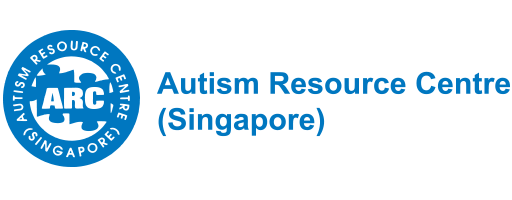Programme last updated on 10 June 2019. This information is subject to change.
Programme Overview
| Conference Day 1 (20 June 2019, Thursday) | ||||||||||
|---|---|---|---|---|---|---|---|---|---|---|
| AM | Registration Desk Opens | |||||||||
| Conference Opening | ||||||||||
| Opening Keynote Address Room: West Ballroom Predictive Factors for Improving the Lifetime Outcomes of Individuals with Autism Prof. Patricia Howlin, Institute of Psychiatry, London, UK
|
||||||||||
| Morning Tea | ||||||||||
| Plenary 1 Room: West Ballroom Becoming Autistic: A Father’s Story Dr. Damian Milton
Inclusion: An Autism Specific Organisation Working Towards “Nothing About Us – Without Us” Dr. Tom Tutton
|
Plenary 2 Room: Central Ballroom The Hidden Face of Autism: Understanding the Characteristics and Needs of Girls and Women on the Autism Spectrum Dr. William Mandy
Autistic Thriving - Not Despite but Because of Autism Dr. Dawn-Joy Leong
| |||||||||
| PM | Lunch | |||||||||
| Concurrent Sessions Workshop – Characteristics of Cyber Offenders - Is There An Autism Link? Prof. Richard Mills & Prof. Mark Brosnan Workshop – Using of Cognitive-Behaviour-Therapy (CBT) with Students with ASD in Mainstream Schools: a Tale of Two CBT-Based Interventions Dr. Mariam Aljunied Workshop – The Development of the Participatory Autism Research Collective (PARC) Dr. Damian Milton Workshop – Context Blindness Dr. Peter Vermeulen Workshop – Supporting Community Participation Through the Use of Active Support Prof. Christine Bigby Workshop – Work and Employment: Leading Fulfilling Adult Lives Ms. Merry Barua Workshop – 10 Rules on How to be a Bad Employer Prof. Richard Mills Panel Discussion – Individuals Thriving with Autism |
||||||||||
| Afternoon Tea | ||||||||||
| Panel Discussion / Concurrent Sessions | ||||||||||
| Conference Day 2 (21 June 2019, Friday) | ||||||||||
|---|---|---|---|---|---|---|---|---|---|---|
| AM | Registration Desk Opens | |||||||||
| Showcase Performance | ||||||||||
| Keynote 2 Room: West Ballroom Neuroharmony and Well-Being Across the Lifespan Dr. Peter Vermeulen, Autisme Centraal, Belgium
| ||||||||||
| Morning Tea | ||||||||||
| Plenary 3 Room: West Ballroom Supporting Community Participation for People with Intellectual Disabilities Prof. Christine Bigby
Putting Principles into Practice: The Road to Eden Ms. Paula Teo
| Plenary 4 Room: Central Ballroom Transitions Across the Lifespan: The Importance of Teaching Daily Living Skills Dr. Laura Klinger
A Positive Education Journey: Strategies for Success at School Ms. Kirsty Russell
|
|||||||||
| PM | Lunch | |||||||||
Concurrent Sessions Workshop – Making Intervention for Young Children with Autism Work for Home Setting |
||||||||||
| Afternoon Tea | ||||||||||
| Panel Discussion / Concurrent Sessions | ||||||||||
| Conference Day 3 (22 June 2019, Saturday) | ||||||||||
|---|---|---|---|---|---|---|---|---|---|---|
| AM | Registration Desk Opens | |||||||||
| Showcase Performance | ||||||||||
| Keynote 3 Room: West Ballroom Transition to Employment and Postsecondary Education: Supporting Learning Styles & Emotion Regulation Dr. Laura Klinger, University of North Carolina, USA
|
||||||||||
| Morning Tea | ||||||||||
Concurrent Sessions Workshop – Context Blindness and Employment |
||||||||||
| PM | Lunch | |||||||||
| Plenary 5 Room: West Ballroom Co-developing Digital Technologies with Members of the Autistic Community Prof. Mark Brosnan
Mental Health Outcomes for Adults with Autism Dr. Kylie Gray
| Plenary 6 Room: Central Ballroom With Training and Support, People on the Autism Spectrum Can Work Ms. Jacelyn Lim & Ms. Susan Hwee
| |||||||||
| Closing Ceremony | ||||||||||
| Afternoon Tea | ||||||||||









